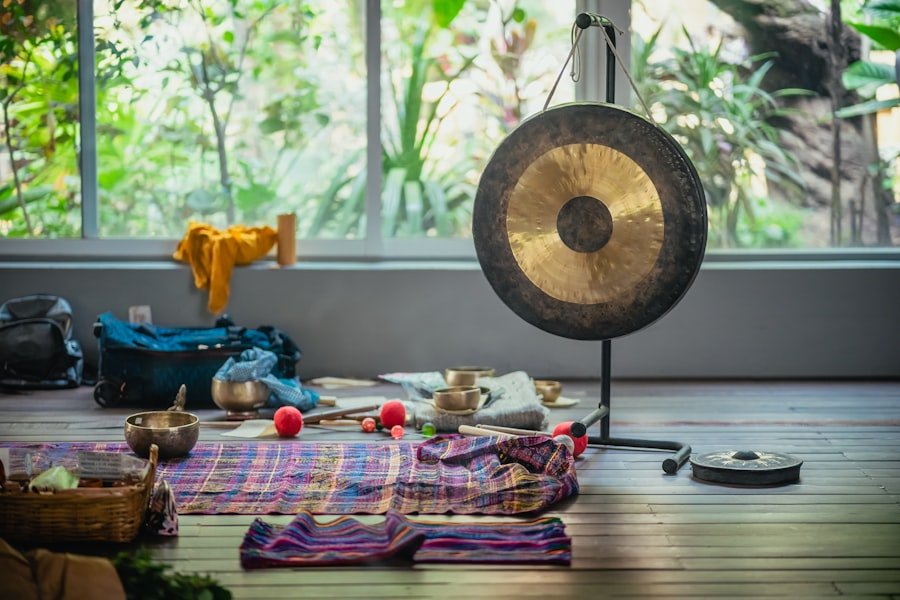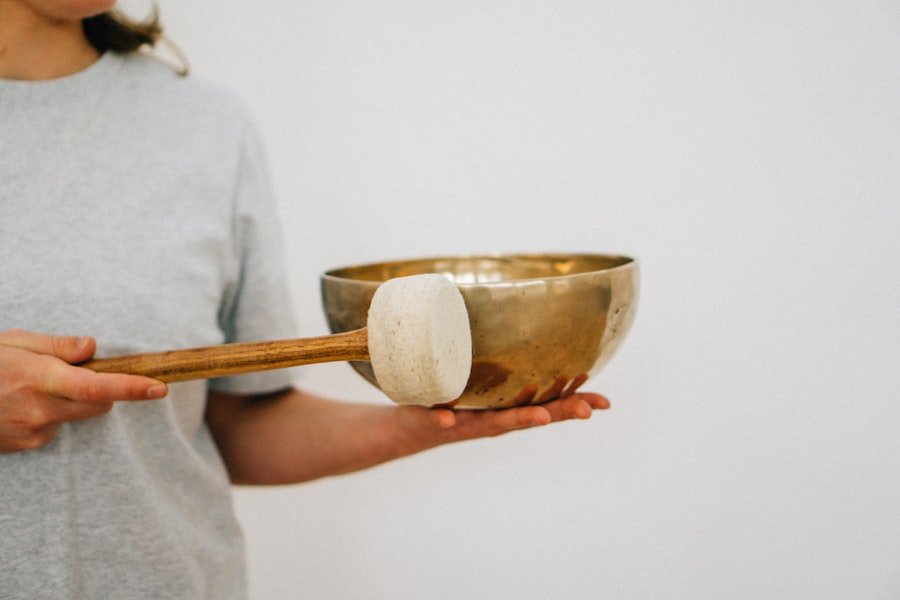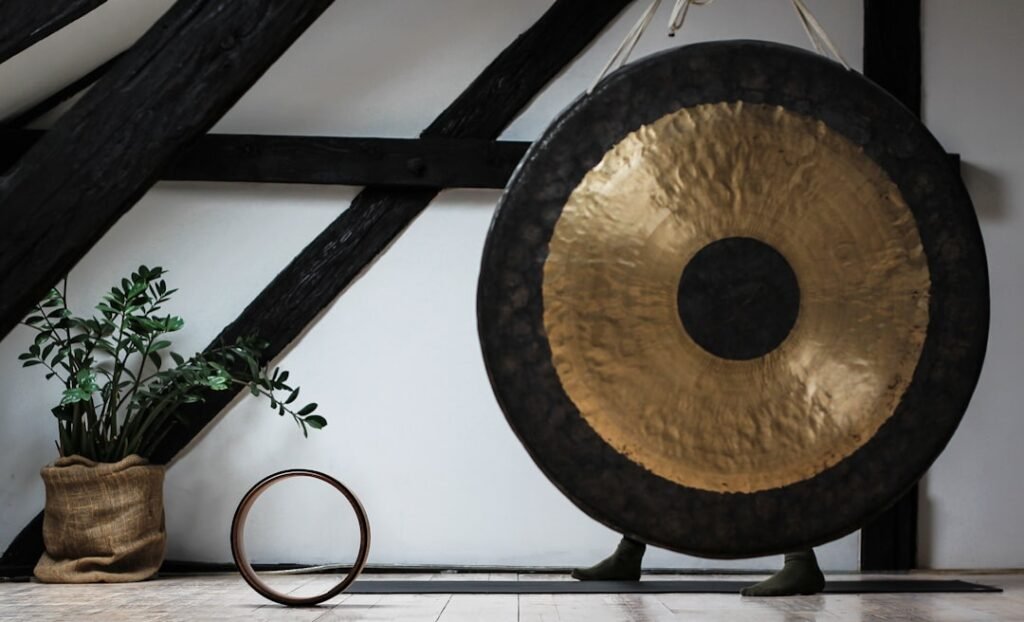In the rich tapestry of Traditional Chinese Medicine (TCM) and philosophy, the concepts of Shen, Jing, and Qi are often referred to as the Three Treasures. These three elements are considered fundamental to understanding the human experience and the intricate balance of health and well-being. Each treasure represents a different aspect of our being, interwoven in a complex relationship that influences our physical, emotional, and spiritual states.
Shen, often translated as spirit or consciousness, embodies our mental and emotional health. Jing, or essence, relates to our physical vitality and reproductive health. Qi, the life force energy, is the dynamic force that flows through all living things, sustaining life and promoting harmony.
The interplay of these three treasures is not merely a theoretical construct; it is a practical framework that informs various aspects of life in Chinese culture. From medicine to martial arts, the understanding of Shen, Jing, and Qi provides insights into how to cultivate a balanced and harmonious existence. As we delve deeper into each treasure, we will uncover their unique characteristics and explore how they contribute to overall well-being.
This exploration will also highlight the importance of nurturing these treasures through specific practices and lifestyle choices. Spaces are filling up fast! Register for Chinese classes at the LC Chinese School in Oslo today.
Table of Contents
ToggleSummary
- The Three Treasures, Shen, Jing, and Qi, are fundamental concepts in Traditional Chinese Medicine and philosophy.
- Shen refers to the spiritual essence and is associated with consciousness, emotions, and the mind.
- Jing represents the vital essence and is linked to physical health, reproduction, and aging.
- Qi is the life force energy that flows through the body and is essential for overall well-being.
- Understanding and balancing the interplay of Shen, Jing, and Qi is crucial for holistic well-being in Traditional Chinese Medicine.
Understanding Shen: The Spiritual Essence
Shen is often regarded as the most ethereal of the Three Treasures, representing our consciousness, spirit, and mental faculties. In TCM, Shen is believed to reside in the heart and is closely linked to our emotional state and mental clarity. A balanced Shen manifests as a calm mind, emotional stability, and a sense of purpose in life.
Conversely, an unbalanced Shen can lead to anxiety, depression, and confusion. The cultivation of Shen is therefore essential for achieving mental clarity and emotional resilience. Practices aimed at nurturing Shen often include meditation, mindfulness, and various forms of spiritual exploration.
These activities help quiet the mind and foster a deeper connection with oneself. In addition to meditation, engaging in creative pursuits such as art or music can also enhance the expression of Shen. By allowing ourselves to explore our inner world and express our emotions creatively, we can cultivate a more profound sense of self-awareness and spiritual fulfilment.
Exploring Jing: The Vital Essence

Jing is often described as the vital essence that forms the foundation of our physical health. It is associated with growth, development, reproduction, and overall vitality. In TCM, Jing is believed to be inherited from our parents at conception and is gradually depleted over time through various life experiences and stresses.
This depletion can lead to signs of ageing, fatigue, and diminished health. Therefore, preserving and nurturing Jing is crucial for maintaining vitality throughout life. To strengthen Jing, individuals can adopt lifestyle practices that promote physical health and well-being.
A balanced diet rich in nutrients, regular exercise, and adequate rest are fundamental components of Jing cultivation. Additionally, practices such as qigong and tai chi can enhance the flow of Jing within the body by promoting relaxation and reducing stress. By prioritising self-care and making conscious choices that support our physical health, we can preserve our vital essence and enhance our overall quality of life.
Unpacking Qi: The Life Force Energy
Qi is perhaps the most dynamic of the Three Treasures, representing the life force energy that flows through all living beings. It is the vital energy that animates our bodies and connects us to the universe around us. In TCM, Qi is believed to circulate through meridians or energy pathways within the body, influencing our physical health and emotional well-being.
A balanced flow of Qi is essential for maintaining health; blockages or imbalances can lead to illness or discomfort. Cultivating Qi involves practices that enhance its flow and balance within the body. Techniques such as acupuncture, acupressure, and herbal medicine are commonly used in TCM to restore harmony to the flow of Qi.
Additionally, breathing exercises and movement practices like qigong can help individuals connect with their Qi more deeply. By learning to harness and regulate this life force energy, we can enhance our vitality and promote overall well-being.
The Interplay of Shen, Jing, and Qi in Traditional Chinese Medicine
The relationship between Shen, Jing, and Qi is intricate and multifaceted. In TCM, these three treasures are seen as interconnected; an imbalance in one can affect the others. For instance, excessive stress may deplete Jing, leading to a weakened flow of Qi and an unsettled Shen.
Conversely, nurturing Shen through meditation can enhance the flow of Qi and support the preservation of Jing. This holistic perspective underscores the importance of addressing all three treasures in any approach to health and wellness. Practitioners of TCM often assess the state of an individual’s Shen, Jing, and Qi when diagnosing health issues.
By understanding how these elements interact within a person’s life, practitioners can develop tailored treatment plans that address imbalances effectively. This comprehensive approach not only focuses on alleviating symptoms but also aims to restore harmony among the Three Treasures for long-term health benefits.
Cultivating Shen: Practices for Nurturing the Spiritual Essence

To cultivate Shen effectively, individuals can engage in various practices that promote mental clarity and emotional stability. Meditation stands out as one of the most powerful tools for nurturing Shen. By dedicating time each day to quiet reflection or mindfulness meditation, individuals can create a space for self-discovery and inner peace.
This practice allows for a deeper connection with one’s thoughts and emotions while fostering a sense of calm amidst life’s challenges. In addition to meditation, incorporating practices such as journaling or engaging in nature walks can further enhance Shen cultivation. Journaling provides an outlet for self-expression and reflection, allowing individuals to process their thoughts and feelings more effectively.
Nature walks offer a chance to connect with the natural world, promoting feelings of tranquillity and grounding. By integrating these practices into daily life, individuals can nurture their spiritual essence and cultivate a more profound sense of well-being.
Nourishing Jing: Ways to Preserve and Strengthen the Vital Essence
Nourishing Jing requires a holistic approach that encompasses diet, lifestyle choices, and self-care practices. A diet rich in whole foods—such as fruits, vegetables, whole grains, lean proteins, and healthy fats—can significantly contribute to preserving Jing. Foods that are particularly beneficial for Jing include nuts, seeds, dark leafy greens, and bone broth.
These nutrient-dense options provide essential vitamins and minerals that support overall vitality. In addition to dietary considerations, prioritising rest and recovery is crucial for nourishing Jing. Adequate sleep allows the body to repair itself and replenish vital essence.
Incorporating relaxation techniques such as gentle yoga or deep breathing exercises can also help reduce stress levels that may deplete Jing over time. By making conscious choices that support physical health—such as staying hydrated and engaging in regular exercise—individuals can effectively preserve their vital essence for years to come.
Balancing Qi: Techniques for Harnessing and Regulating Life Force Energy
Balancing Qi involves understanding how to harness this life force energy effectively within the body. Various techniques can be employed to promote a smooth flow of Qi throughout the meridians. Acupuncture is one such method that involves inserting fine needles into specific points on the body to stimulate Qi flow and restore balance.
This ancient practice has been used for centuries to address various health concerns by targeting blockages in Qi circulation. In addition to acupuncture, practices like qigong offer individuals an opportunity to cultivate their Qi through gentle movement and breathwork. Qigong combines physical postures with mindful breathing techniques to enhance energy flow while promoting relaxation.
Regular practice not only helps balance Qi but also fosters a deeper connection between mind and body. By incorporating these techniques into daily routines, individuals can harness their life force energy more effectively while promoting overall health.
The Three Treasures in Chinese Martial Arts and Qigong
The concepts of Shen, Jing, and Qi are deeply embedded in Chinese martial arts and qigong practices. In martial arts training, practitioners learn to cultivate their Qi for enhanced strength, agility, and focus during combat or performance. The interplay between these treasures allows martial artists to tap into their full potential while maintaining mental clarity under pressure.
Qigong serves as both a meditative practice and a form of physical exercise that emphasises the cultivation of all three treasures simultaneously. Through mindful movement combined with breath control, practitioners develop their Shen by fostering mental awareness while strengthening their Jing through physical conditioning. This holistic approach not only enhances martial prowess but also promotes overall well-being by integrating mind-body principles.
The Role of the Three Treasures in Traditional Chinese Philosophy and Cosmology
In addition to their significance in medicine and martial arts, Shen, Jing, and Qi hold profound implications within Traditional Chinese philosophy and cosmology. These concepts reflect a holistic worldview that emphasises interconnectedness between humans and nature as well as between mind-body-spirit dimensions of existence. The balance among these treasures mirrors broader principles found in Taoist philosophy—such as yin-yang duality—where harmony arises from opposing forces working together.
Furthermore, understanding how these treasures relate to cosmic energies provides insight into human existence’s place within the universe’s grand design. By recognising our connection with Shen (spirit), Jing (essence), and Qi (energy), we gain a deeper appreciation for life’s complexities while fostering respect for nature’s rhythms.
Embracing the Three Treasures for Holistic Well-being
In conclusion, embracing the Three Treasures—Shen, Jing, and Qi—offers a pathway towards holistic well-being that integrates mind, body, and spirit. By understanding each treasure’s unique characteristics while recognising their interdependence within our lives’ fabric; we can cultivate greater awareness about ourselves as individuals navigating this world. As we explore practices aimed at nurturing these treasures—such as meditation for Shen cultivation or dietary choices supporting Jing preservation—we empower ourselves with tools necessary for achieving balance amidst life’s challenges.
Ultimately embracing this ancient wisdom allows us not only to enhance personal health but also fosters deeper connections with others around us. For those interested in further exploring these concepts through language learning or cultural immersion experiences; consider enrolling in Chinese courses at LC Chinese School in Oslo! With expert instructors guiding you through language acquisition alongside cultural insights; you’ll gain valuable knowledge about TCM principles while enhancing your understanding of this rich tradition!







